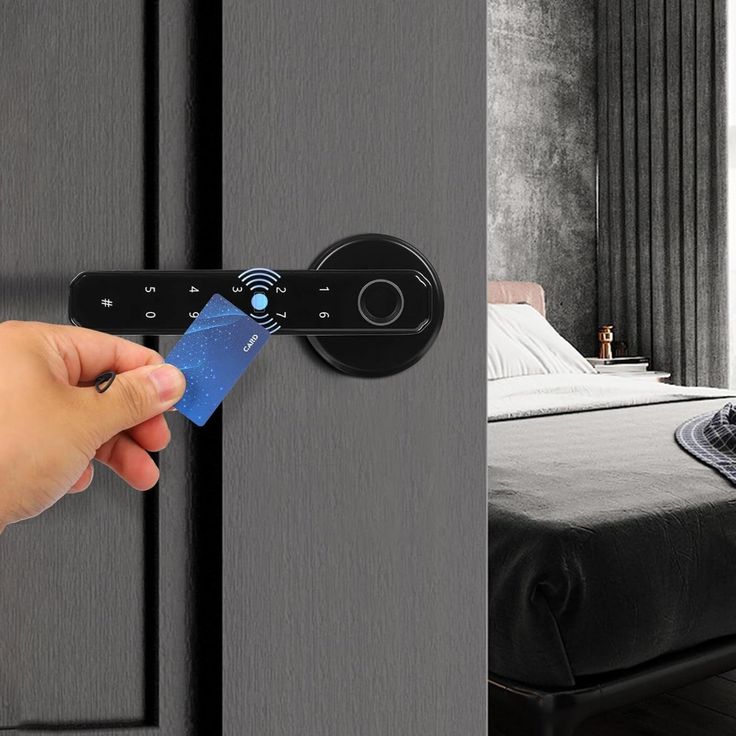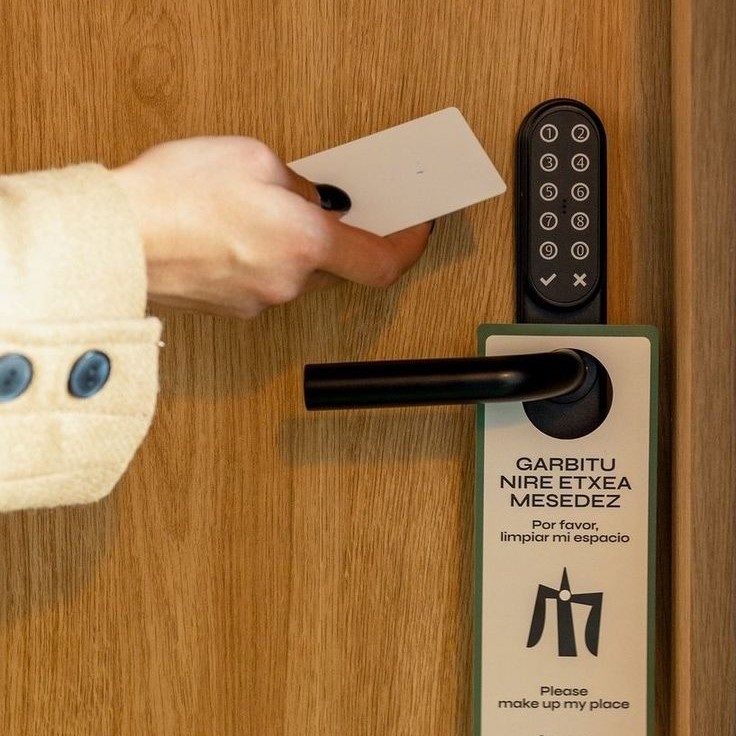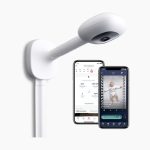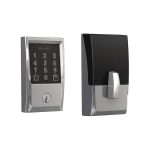The Evolution of Hotel Security Systems
Hotel security has undergone significant advancements over the years, moving far beyond traditional metal keys. Today, electronic hotel locks represent the pinnacle of modern security solutions. These advanced systems use cutting-edge technology to secure guest rooms, offering both convenience and safety. Unlike mechanical locks, which rely on physical keys that can be lost or duplicated, electronic locks eliminate these risks by using digital credentials such as codes, cards, or biometrics to grant access.
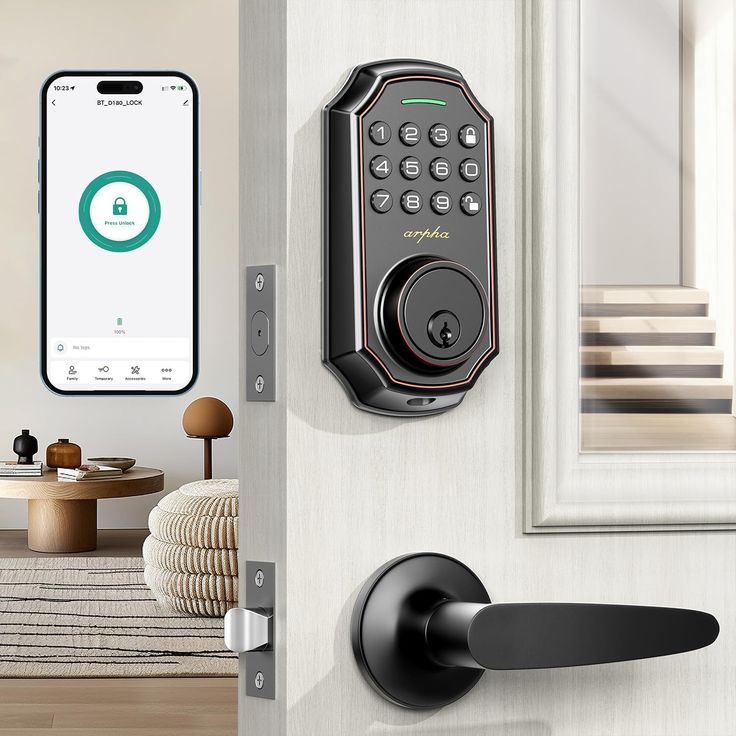
As hotels strive to meet the demands of tech-savvy travelers, adopting electronic locks becomes essential. Not only do these systems enhance security, but they also streamline operations by reducing the need for physical key management. For instance, housekeeping staff can gain temporary access without disturbing guests. Moreover, electronic locks integrate seamlessly with other hotel technologies, creating a cohesive ecosystem that benefits both staff and guests. This integration allows hotels to offer features like mobile check-in, remote control of room amenities, and real-time monitoring of guest activities—all of which contribute to an improved guest experience.
The evolution of hotel security systems reflects broader technological advancements in the hospitality industry. From simple keypad locks to sophisticated biometric scanners, each innovation builds upon the last, providing greater convenience and security. As we explore further, it becomes clear why electronic locks are now considered indispensable tools for modern hotels.
Types of Electronic Hotel Locks: A Closer Look
There are several types of electronic hotel locks, each designed to cater to different needs and preferences. One popular option is RFID-based locks. These locks use radio-frequency identification technology to authenticate access via keycards. Guests simply swipe or tap their card near the lock, and it unlocks automatically. RFID locks are widely used due to their reliability, ease of use, and compatibility with existing hotel infrastructure. Many hotels prefer them because they allow for easy updates and replacements of keycards, ensuring secure access even when cards are lost or stolen.
Another type is PIN code locks, which allow users to enter a unique passcode for entry. This method appeals to hotels seeking simplicity and cost-effectiveness. PIN code locks are particularly useful in situations where guests may not have access to smartphones or keycards, such as budget-friendly accommodations or vacation rentals. They also provide an added layer of security since passcodes can be changed frequently to prevent unauthorized access.
Biometric locks have gained traction in recent years, especially among high-end hotels. These systems use fingerprint or facial recognition to verify identities. While more expensive than other options, biometric locks offer unparalleled security and convenience. They eliminate the need for physical keys or passcodes, reducing the risk of theft or loss. Additionally, biometric locks provide a touchless experience, which has become increasingly important in the post-pandemic world.
Bluetooth-enabled locks enable smartphone integration, allowing guests to unlock doors directly from their devices. This feature is highly appealing to younger travelers who prioritize convenience and technology. By downloading a hotel app, guests receive digital keys that work just like traditional ones but without the hassle of carrying extra items. Bluetooth locks also support remote access, enabling hotel staff to assist guests in case of emergencies.
Each type of electronic lock comes with its own set of advantages and limitations. Understanding these differences helps hoteliers choose the most suitable solution for their establishment. Whether prioritizing affordability, security, or user experience, there is an electronic lock system available to meet every need.
Benefits of Upgrading to Smart Hotel Lock Systems
Switching to smart hotel lock systems brings numerous advantages that go beyond enhanced security. For starters, these systems improve operational efficiency by automating tasks like check-in and check-out processes. Guests can receive digital keys via mobile apps, eliminating the need for front desk interactions. This feature proves especially valuable during peak travel seasons or late-night arrivals, reducing wait times and improving overall guest satisfaction.
Furthermore, electronic locks provide real-time monitoring capabilities. Managers can track who accesses specific rooms and at what times, ensuring accountability and transparency. In case of unauthorized attempts, alerts notify hotel staff immediately, enabling swift action. This level of oversight was impossible with traditional locks, making smart systems indispensable for modern hotels.
Many systems also offer remote lock/unlock functionality, empowering staff to resolve issues without visiting the room physically. For example, if a guest loses their keycard or forgets their passcode, front desk personnel can unlock the door remotely, saving time and effort. Similarly, housekeeping staff can gain temporary access to clean rooms without needing physical keys, streamlining daily operations.
In addition to operational improvements, smart hotel locks enhance guest experiences by offering personalized services. Some systems integrate with room automation platforms, allowing guests to control lighting, temperature, and entertainment systems through a single interface. This seamless integration creates a truly connected environment that caters to individual preferences.
Key Considerations When Choosing Electronic Hotel Locks
Selecting the right electronic hotel locks requires careful consideration of various factors. First, compatibility with existing infrastructure plays a critical role. Some hotels may already have legacy systems in place, necessitating upgrades rather than complete replacements. In such cases, modular solutions that integrate with current setups prove advantageous. For example, certain locks come equipped with adapters that fit into pre-existing door mechanisms, minimizing disruption during installation.
Budget constraints also influence decision-making. High-end systems often come with premium features but may exceed affordability limits for smaller establishments. Conversely, budget-friendly alternatives sometimes compromise on quality or versatility. Striking a balance between cost and functionality ensures long-term satisfaction. To evaluate costs effectively, consider not only the initial purchase price but also ongoing maintenance and support fees.
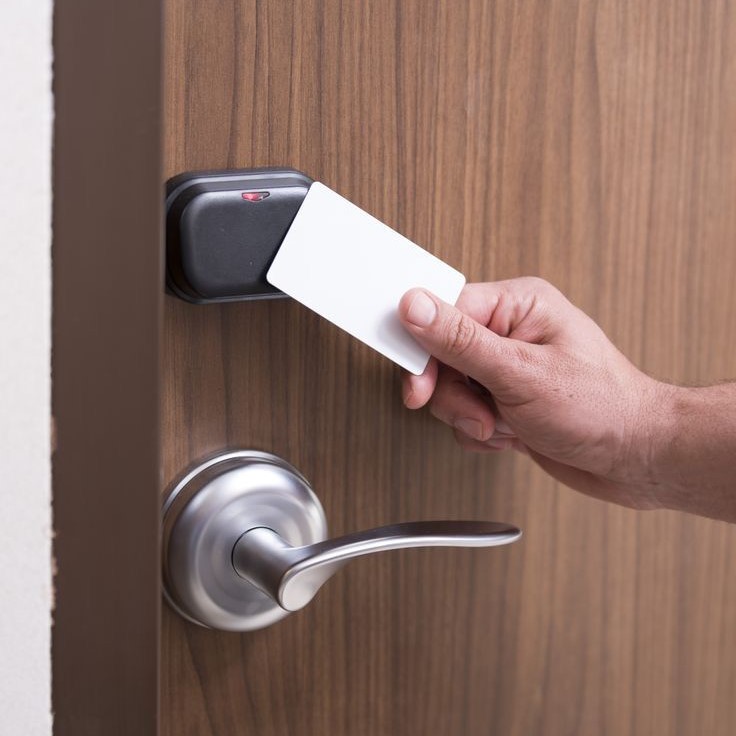
Additionally, evaluating customer support and warranty offerings before purchase safeguards against potential issues down the line. Reliable manufacturers provide comprehensive documentation, training materials, and technical assistance to ensure smooth implementation. A strong support network becomes crucial during emergencies or system failures, helping minimize downtime and inconvenience.
Security certifications should also be a priority when selecting electronic locks. Look for products that comply with industry standards such as FIPS 140-2 or ISO/IEC 27001. These certifications guarantee that the system meets rigorous requirements for data protection and privacy. Reputable brands undergo regular audits to maintain compliance, ensuring that their products remain secure even as new threats emerge.
Installation Process and Best Practices
Proper installation determines the effectiveness of any electronic hotel lock system. Hiring certified professionals familiar with the chosen technology guarantees optimal performance. During installation, attention to detail ensures all components function correctly. For example, aligning sensors precisely prevents false readings or malfunctions. Wiring must be done securely to avoid loose connections that could cause intermittent issues.
After installation, thorough testing verifies the system’s reliability under various scenarios. Simulating different access attempts helps identify vulnerabilities or glitches early on. Test cases might include entering incorrect passcodes, attempting forced entry, or simulating power outages to assess backup battery performance. Regular maintenance schedules should follow, including battery replacements and firmware updates, to keep the system running smoothly.
Training staff members on proper usage minimizes user errors and maximizes system efficiency. Provide hands-on demonstrations and written guides to ensure everyone understands how to operate the locks safely and effectively. Encourage feedback from staff and guests to identify areas for improvement continuously. Establishing clear protocols for handling emergencies, such as lost keycards or forgotten passcodes, ensures quick resolution of any issues that arise.
Addressing Common Concerns
Despite their advantages, some hesitation exists regarding electronic hotel locks. Privacy remains a primary concern, particularly with biometric and smartphone-based systems. To address this, reputable manufacturers implement robust encryption protocols to protect sensitive data. Transparent privacy policies further reassure guests that their information stays secure. For example, biometric data is typically stored locally on the device rather than transmitted to external servers, reducing the risk of unauthorized access.
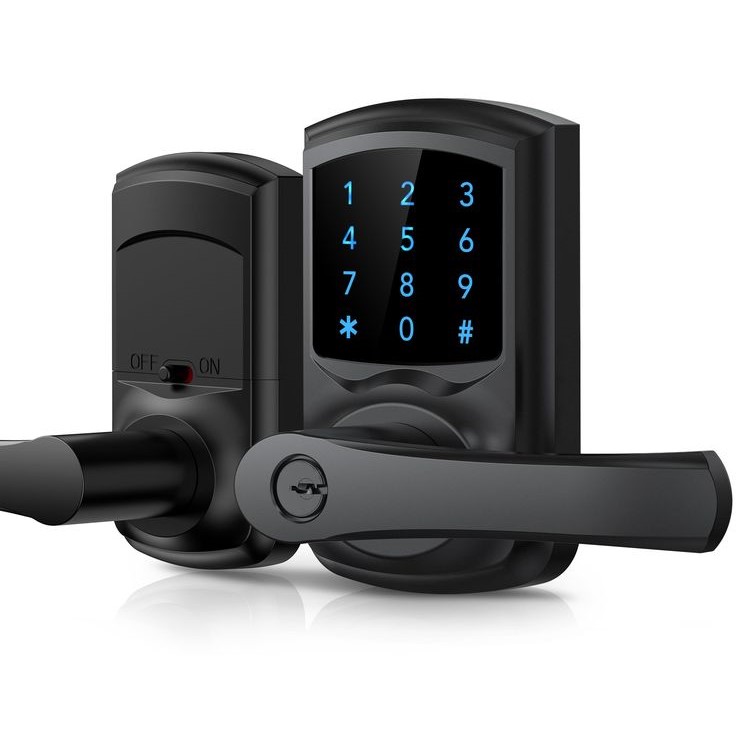
Another worry involves power outages affecting lock functionality. Most modern systems include backup batteries capable of sustaining operation during short disruptions. Additionally, manual override mechanisms provide emergency access if needed. Educating guests about these safeguards alleviates fears and promotes trust in the technology. Some hotels even display informational posters near locks to explain their security features and contingency plans.
Reliability is another common concern, especially in environments prone to extreme weather conditions or heavy usage. Manufacturers address this by designing locks with durable materials and protective coatings. Regular stress testing ensures that products withstand harsh conditions without compromising performance. Certifications like IP65 or higher indicate resistance to dust, water, and other environmental factors, giving hoteliers peace of mind.
Future Trends in Hotel Security Technology
The future of hotel security lies in even more advanced applications of electronic hotel locks. Artificial intelligence (AI) integration promises predictive maintenance capabilities, detecting potential failures before they occur. Machine learning algorithms analyze access patterns to optimize system performance continuously. For example, AI-powered systems can identify unusual activity, such as multiple failed login attempts, and alert hotel staff proactively.
Moreover, Internet of Things (IoT) connectivity enables holistic management of hotel facilities. By linking locks with lighting, climate control, and surveillance systems, hotels create smarter environments that adapt to guest preferences automatically. Imagine a scenario where a guest enters their room, and the lights adjust to their preferred brightness, the thermostat sets the ideal temperature, and background music begins playing—all triggered by the act of unlocking the door.
Blockchain technology offers another exciting possibility for enhancing security and transparency. By storing access records on decentralized ledgers, hotels can ensure tamper-proof logs of all entries and exits. This approach provides an additional layer of accountability, reassuring both guests and management that data remains accurate and unaltered.
As technology continues to evolve, staying updated with emerging trends ensures hotels remain competitive and secure. Embracing innovations like AI, IoT, and blockchain not only improves security but also enhances the overall guest experience, setting modern hotels apart from their competitors.
Final Thoughts: Securing Tomorrow’s Hospitality Industry
In conclusion, electronic hotel locks play a vital role in shaping the future of hotel security. Their ability to combine convenience, efficiency, and protection makes them indispensable tools for modern establishments. By understanding available options, considering key factors during selection, and following best practices for implementation, hotels can significantly enhance their security measures. Ultimately, investing in reliable electronic locks not only safeguards properties but also elevates guest satisfaction, paving the way for continued success in the hospitality industry.
As we look ahead, the possibilities for innovation in hotel security seem endless. From AI-driven analytics to blockchain-based record-keeping, the next generation of electronic locks promises even greater levels of security and convenience. By embracing these advancements, hotels can position themselves as leaders in the industry, delivering exceptional service while keeping guests safe.
